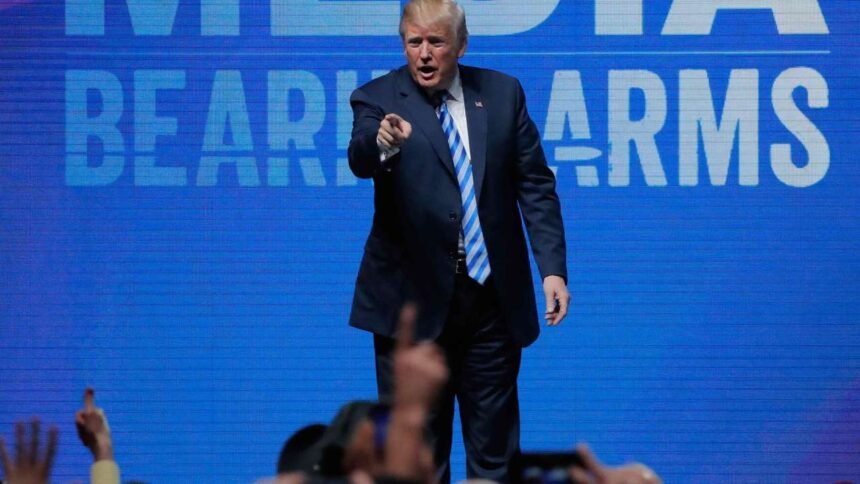Before the US presidential election, the current President Donald Trump expressed grave concerns about potential “bloodshed” if he were to be defeated by his Democratic rival. These ominous remarks have added tension to an already highly charged political atmosphere, raising concerns about the potential aftermath of the election and the state of democracy in the United States.
President Trump’s warning of a “bloodbath” if he is not re-elected has been a recurring theme in his campaign rhetoric. He has repeatedly suggested that a victory for his opponent would lead to chaos, violence, and an erosion of law and order in the country. Such rhetoric has polarized opinions and fueled anxieties among voters across the political spectrum.
The use of inflammatory language and dire predictions about the consequences of electoral defeat is not uncommon in political campaigns. However, Trump’s warnings have drawn particular attention due to their intensity and the volatile political climate in the United States, marked by social unrest, partisan divisions, and concerns about the legitimacy of the electoral process.
Critics argue that Trump’s warnings of a “bloodbath” are irresponsible and undermine the democratic principles of peaceful transitions of power and respect for election outcomes. They point out that such rhetoric can incite fear, division, and even violence among supporters, creating a volatile and dangerous environment.
On the other hand, supporters of President Trump argue that his warnings are justified given the perceived threats to law and order posed by certain political movements and ideologies. They view Trump as a strong defender of law enforcement and national security and believe that his re-election is essential to maintaining stability and security in the country.
The impact of Trump’s warnings on voter perceptions and behavior remains a subject of debate. While some voters may be swayed by fears of potential unrest and disorder, others may view such warnings as alarmist and designed to manipulate public opinion.
The broader context of Trump’s warnings must also be considered, including ongoing controversies surrounding mail-in voting, concerns about foreign interference in elections, and allegations of voter fraud. These factors contribute to a climate of uncertainty and distrust, further intensifying the stakes of the election.
The role of political leaders in shaping public discourse and perceptions is crucial, especially during periods of heightened political tension. Trump’s warnings of a “bloodbath” underscore the need for responsible and measured communication from leaders, focusing on unity, civility, and respect for democratic processes.
As the US presidential election approaches, the focus should be on promoting voter education, ensuring election integrity, and fostering a peaceful transition of power regardless of the outcome. Political leaders, media organizations, and civil society have a collective responsibility to uphold democratic norms and principles, safeguarding the integrity of the electoral process and preserving social cohesion.
President Trump’s cautionary remarks about a potential “bloodbath” should he lose the US presidential election mirror the intensified tensions and divisive atmosphere surrounding the impending vote. While such rhetoric may appeal to certain segments of the electorate, it also risks inflaming divisions and undermining democratic norms. As the election unfolds, all stakeholders need to prioritize dialogue, cooperation, and respect for democratic institutions to ensure a peaceful and orderly electoral process.









